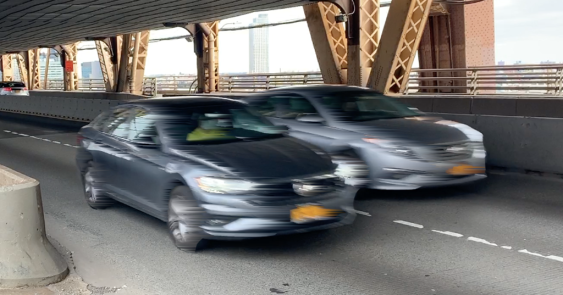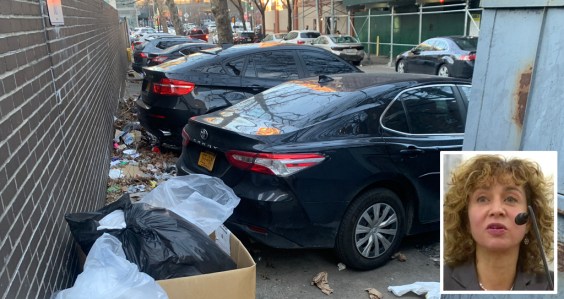This year, for the first time, state and regional transportation agencies have to measure the impact of their policies on climate change. That's thanks to a federal rule enacted in the final days of the Obama administration.
But if the Trump administration gets its way, this will also be the last year transportation agencies assess their climate impacts.
Earlier this year, U.S. DOT tried to weasel out of compliance with the rule, claiming that Trump's "Executive Order on Energy" had rendered it invalid. But that's not how federal rules work, and DOT officials backed down after the Natural Resources Defense Council and several states sued to force compliance.
Now the Trump DOT is at it again, and this time they're not taking shortcuts. U.S. DOT is working to reverse the climate change assessment policy through the formal rule making process -- a lengthy administrative procedure. Last week, the Federal Highway Administration opened the public comment period to get that process started. If you want U.S. DOT to retain the climate accountability rule, you have until November 6 to weigh in.
By U.S. DOT's own estimates, the "cost" of assessing the climate impacts of transportation policy is negligible. The federal government projects to spend just $11 million over nine years on compliance. State and regional agencies already employ staff to monitor environmental quality who could take on the analysis.
Nor is there widespread objection to the rule. NRDC's Amanda Eaken points out that when the Obama administration proposed the climate rule last year, public feedback was overwhelmingly positive; 100,000 people weighed in to support it.
"This is yet another example of the Trump Administration pretending that climate change doesn’t exist and attempting to wipe the books," Eaken told Streetsblog.
Getting rid of climate accountability will affect transportation policy in other ways too. "There’s this whole series of benefits" when transportation agencies consider climate impacts, Eaken says. "It turns out the same kind of planning to improve GHG emissions also improves health outcomes, also improves congestion and road safety."
This time around, federal officials are accelerating the rulemaking process. The public comment period will only last 30 days, compared to 120 days when the Obama administration created the rule last year. The FHWA's internal guidelines recommend at least 90 days, notes Eaken.
The rushed timetable is a sign that the Trump administration has already made up its mind. Even so, every person who officially tells U.S. DOT to preserve climate accountability in transportation policy will create a record of opposition to this reckless policy change.





